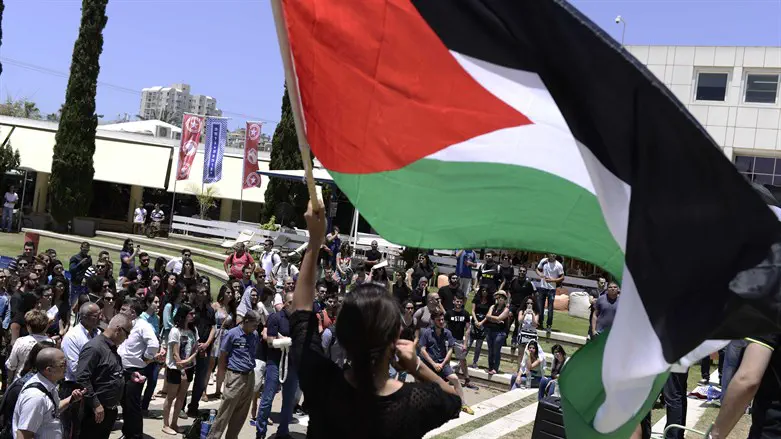
Over 180 applications were submitted by students to the disciplinary committees in the past academic year, demanding an investigation into statements of incitement and support for terrorism by students, contrary to claims made by the heads of Israeli academia.
Last Tuesday, in a discussion in the Knesset Education Committee, Prof. Ariel Porat, President of Tel Aviv University, claimed that ''the main problem on campuses is incitement against Arab students.''
In response to Freedom of Information requests submitted by members of the Im Tirtzu movement, it was discovered that approximately 180 complaints were filed with the disciplinary committees at the following institutions: Hebrew University, Technion, Tel Aviv, Ben Gurion, Bar Ilan, Ariel, and the Open University. The University of Haifa has yet to respond to an inquiry from Im Tirtzu on the subject.
The "record holder" of complaints filed during the Iron Swords period is the Technion, based in Haifa.
67 complaints were filed by students with the disciplinary committee. 36 cases were closed without proceedings. In 31 applications, disciplinary proceedings were held. Of these, 24 cases involved educational clarification talks, and one case involved disciplinary proceedings by the Vice President for Academic Affairs. In six cases, disciplinary proceedings were held in the Student Disciplinary Court: three cases are still in progress, and three cases in which the procedure was frozen due to the suspension of the students' studies. The Technion has refused to provide specific reasons for the suspension of proceedings in the 36 cases and generally refused to provide details on each and every case.
At the Hebrew University, 41 complaints were filed. According to the university: 19 did not constitute incitement, and 22 others were accepted for internal discussion by the disciplinary committee, of which three complaints were filed against students. The result of the three complaints: 1. Acquittal due to doubt. 2. The accused apologized and due to evidentiary difficulties, the complaint was canceled. 3. It was decided to withdraw the complaint.
At Tel Aviv University, 28 complaints were registered, but only three of them were defined as "alleged support for terrorism."
At Ben Gurion University, 14 complaints were filed, following which disciplinary proceedings were opened. Beyond that, the university did not submit any additional details.
At Bar Ilan, 17 complaints were filed, two cases were referred to the Dean of Students, and one was reviewed by the rector. No details of the complaints were presented to Im Tirtzu personnel.
At Ariel, 10 complaints were received, one of which was suspected of incitement to terrorism, and the student was immediately expelled and returned after a disciplinary investigation, five complaints were closed because they did not meet the conditions for incitement, three complaints were investigated and the students received a warning.
The Open University: four complaints were received for supporting Hamas. One was referred for disciplinary action and closed. Three were referred to the police.
Regarding regulations, a study conducted by Im Tirtzu revealed that no institution has a section against incitement to terrorism. Tel Aviv University and the Technion have a special section against incitement to racism. All universities prohibit harming the good name of the institution, and in general, the institutions define disciplinary offenses and penalties for criminal offenses that should receive a police and criminal response: vandalism of property, traffic offenses, and violent assaults.
''The answers we received prove several things: First, it is no longer possible to claim that this is a phenomenon that does not exist, as the heads of the universities are trying to say. Second, the critical need for creating clear and transparent enforcement mechanisms becomes even more apparent – it is not possible that dozens of complaints are rejected out of hand and that no student or citizen, the taxpayer whose funds the universities are funded, has any control over the issue. Third – the regulations in academic institutions do not provide the goods, it is time to pass the law that MK Limor Son Har Melech is promoting together with us, or all the heads of institutions will include clauses against incitement to terrorism in academia in the regulations!'' Im Tirtzu Movement CEO Matan Jerafi commented.
